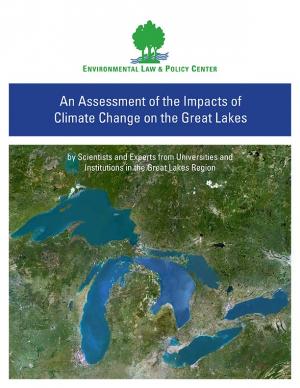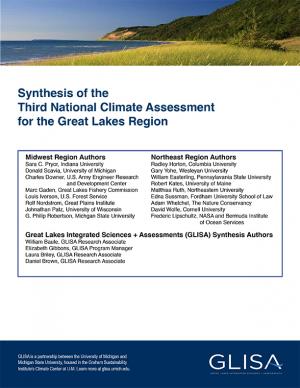Access a range of climate-related reports issued by government agencies and scientific organizations. Browse the reports listed below, or filter by scope, content, or focus in the boxes above. To expand your results, click the Clear Filters link.
Climate change is causing significant and far-reaching impacts on the Great Lakes and the Great Lakes region. This report, from 18 leading scientists and experts from Midwest and Canadian universities and research institutions, draws on the array of existing research to assess how the shifting global climate impacts the unique Great Lakes region.
Intense rainstorms, floods, and heat waves will become more common in the Great Lakes region due to climate change in the coming decades. While ice-cover declines will lengthen the commercial navigation season on the lakes, warmer lake temperatures will increase risks from invasive species, and could threaten water quality. Material in this report is largely a synthesis of the information contained in the National Climate Assessment’s chapters on the Midwest (Chapter 18) and Northeast (Chapter 16). Donald Scavia, GLISA's co-director, was one of the convening authors of the NCA's Midwest regional chapter; GLISA also served as a hub for the compilation of technical inputs for the Midwest chapter.
The Dane County Climate Change Action Council was formed in March 2013 with a mission to ensure that Dane County government was better prepared for weather extremes brought on by global climate change. The Council facilitated an internal review of county preparations and potential modifications to the operations and capital investments of the county, resulting in this report identifying Dane County’s potential vulnerabilities to weather extremes associated with global climate change and strategies to adapt to a changing climate. The report is the first step in the county’s effort to improve the resiliency of its climate-sensitive resources in the face of climate change; future steps will include cross-departmental collaborations to implement the adaptation strategies outlined in the report.






